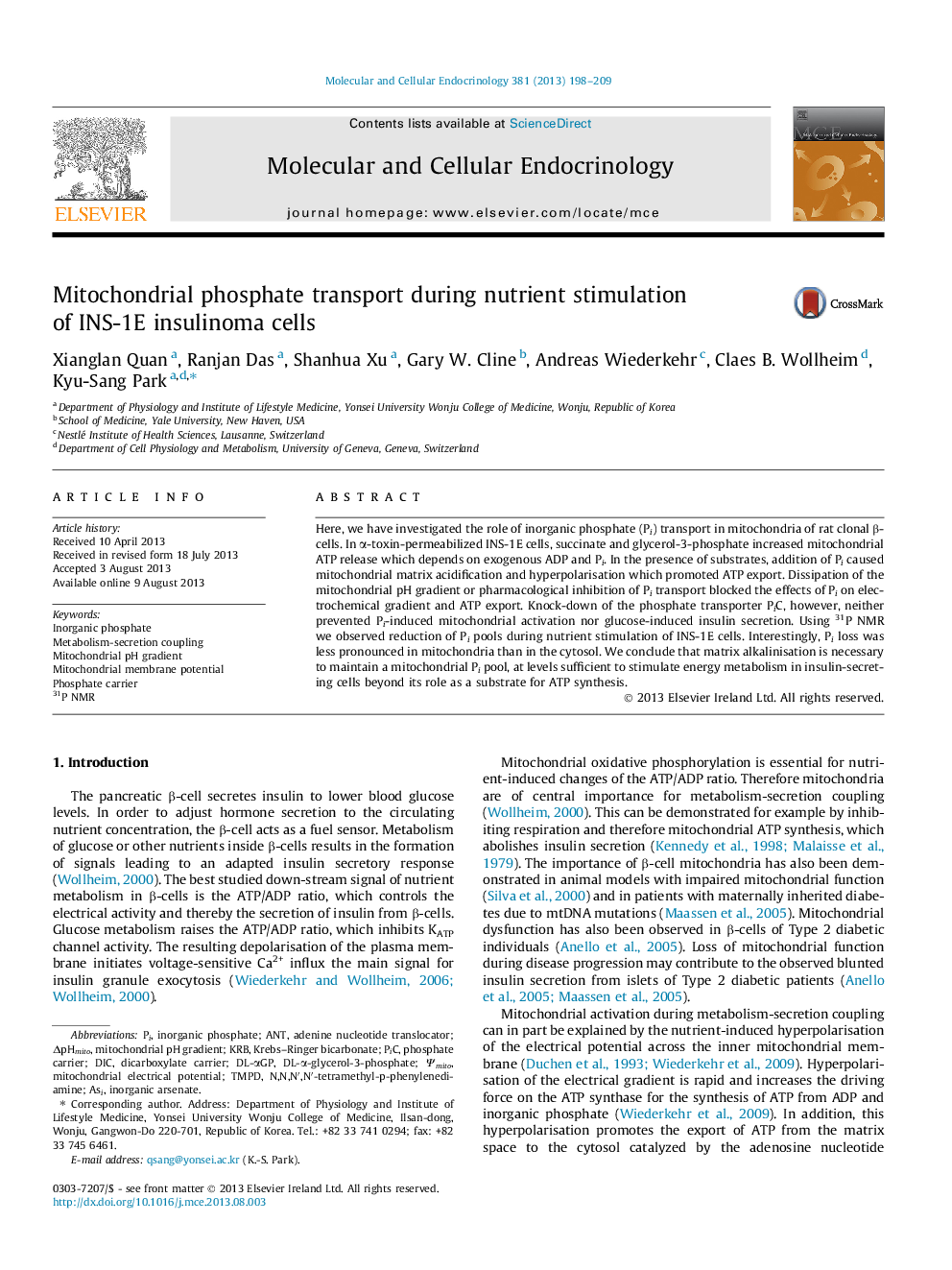| Article ID | Journal | Published Year | Pages | File Type |
|---|---|---|---|---|
| 8477291 | Molecular and Cellular Endocrinology | 2013 | 12 Pages |
Abstract
Here, we have investigated the role of inorganic phosphate (Pi) transport in mitochondria of rat clonal β-cells. In α-toxin-permeabilized INS-1E cells, succinate and glycerol-3-phosphate increased mitochondrial ATP release which depends on exogenous ADP and Pi. In the presence of substrates, addition of Pi caused mitochondrial matrix acidification and hyperpolarisation which promoted ATP export. Dissipation of the mitochondrial pH gradient or pharmacological inhibition of Pi transport blocked the effects of Pi on electrochemical gradient and ATP export. Knock-down of the phosphate transporter PiC, however, neither prevented Pi-induced mitochondrial activation nor glucose-induced insulin secretion. Using 31P NMR we observed reduction of Pi pools during nutrient stimulation of INS-1E cells. Interestingly, Pi loss was less pronounced in mitochondria than in the cytosol. We conclude that matrix alkalinisation is necessary to maintain a mitochondrial Pi pool, at levels sufficient to stimulate energy metabolism in insulin-secreting cells beyond its role as a substrate for ATP synthesis.
Keywords
Related Topics
Life Sciences
Biochemistry, Genetics and Molecular Biology
Cell Biology
Authors
Xianglan Quan, Ranjan Das, Shanhua Xu, Gary W. Cline, Andreas Wiederkehr, Claes B. Wollheim, Kyu-Sang Park,
